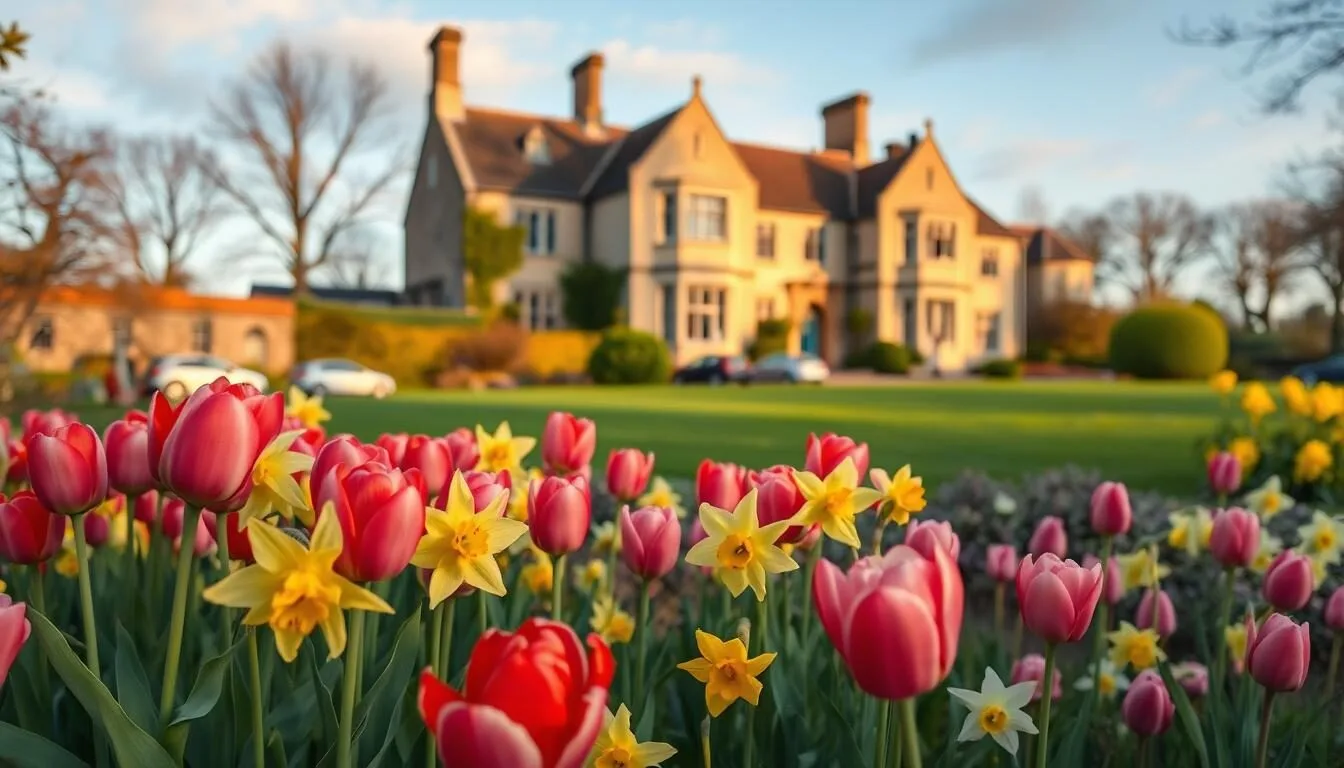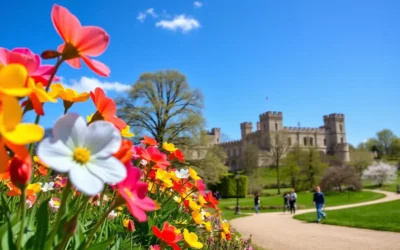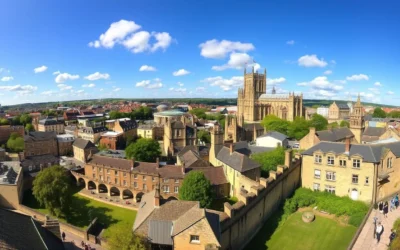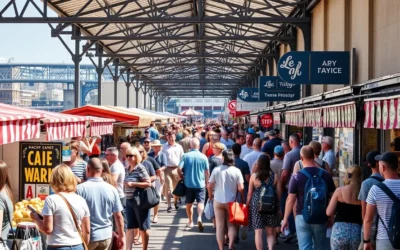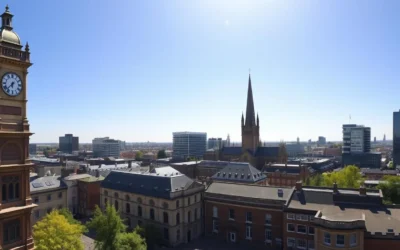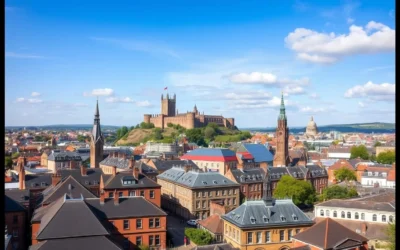Did you know England packs more than 1,200 years of history into a country smaller than the state of New York? This compact nation boasts 32 UNESCO World Heritage Sites, more than 1,500 castles, and the world’s oldest underground railway system. From the misty moorlands of Yorkshire to the sun-dappled villages of the Cotswolds, England delivers an astonishing variety of experiences within its modest borders—all connected by a transportation network you could traverse in a single day.
Getting There & Planning Your Journey
England is easily accessible through several major international airports. London Heathrow (LHR) and London Gatwick (LGW) serve as the primary gateways, though Manchester (MAN), Birmingham (BHX), and Bristol (BRS) also welcome international flights. From North America, expect flights to take between 7-10 hours depending on your departure city.
Most visitors from North America, Australia, and the EU can enter the UK without a visa for stays up to six months, though passport requirements vary. Always check the UK government website for the most current entry requirements before traveling.
Ready to Book Your England Adventure?
Find the best flight deals to kickstart your journey to England.
When planning your England itinerary, consider that while the country looks small on a map, travel between regions can take time. A focused trip to one or two regions often proves more satisfying than trying to see everything at once. For first-time visitors, a classic route might include London (3-4 days), Bath or Oxford (2 days), and either the Lake District or the Cotswolds (2-3 days).
Best Time to Visit & Weather Tips
England experiences four distinct seasons, each offering a different perspective on this diverse nation. The weather is famously changeable – locals joke you can experience all four seasons in a single day!
Recommended Seasons to Visit
- Late Spring (May-June): Mild temperatures of 15-20°C (59-68°F), blooming gardens, and fewer crowds make this an ideal time. The countryside bursts with color, and daylight extends into the evening.
- Summer (July-August): Peak tourist season with temperatures averaging 18-23°C (64-73°F). Expect the fullest calendar of festivals and events, but also the largest crowds and highest prices.
- Early Autumn (September-October): Comfortable temperatures of 11-18°C (52-64°F) with beautiful fall colors in rural areas. Tourist attractions remain open but with fewer visitors.
Seasons to Approach with Caution
- Winter (December-February): Temperatures range from 2-7°C (36-45°F), with shorter daylight hours and some rural attractions closed. However, Christmas markets and festive decorations create a magical atmosphere in cities.
- Early Spring (March-April): Often rainy with unpredictable temperatures of 7-13°C (45-55°F). Some attractions may still operate on limited winter hours.
Regardless of when you visit, pack layers and always bring a waterproof jacket. The British weather can change rapidly, and being prepared will ensure you stay comfortable while exploring.
Getting Around Locally
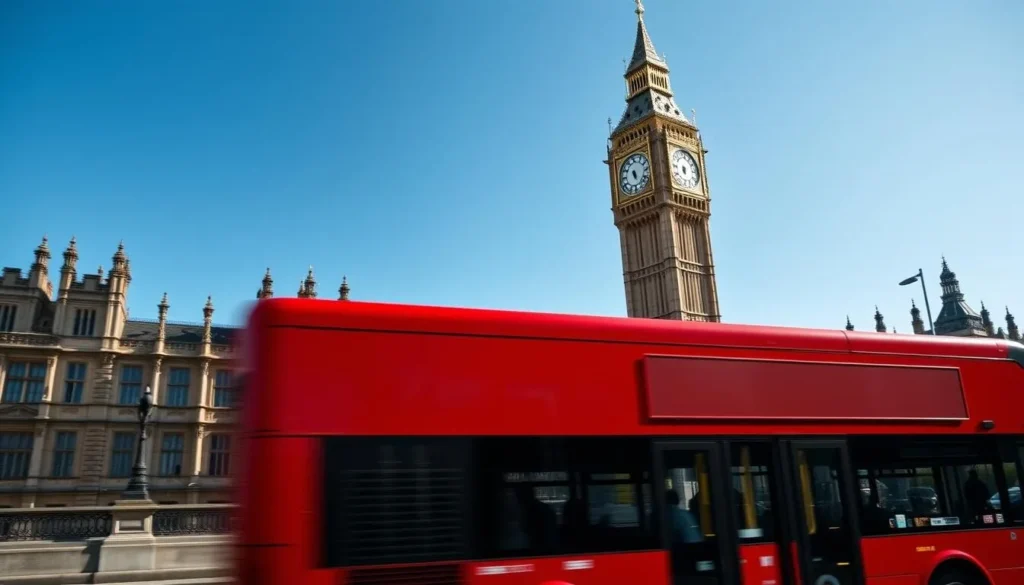
England offers excellent transportation options that make getting around relatively straightforward, though not always inexpensive.
Public Transportation
Britain’s rail network connects most major towns and cities, with frequent services on main routes. Book tickets in advance through National Rail for the best prices – tickets purchased on the day of travel can be significantly more expensive. In London, the iconic Underground (or “Tube”) provides comprehensive coverage, while cities like Manchester, Birmingham, and Newcastle have their own metro systems.
Buses offer a more economical option for both city and intercity travel. Companies like National Express and Megabus connect major destinations at a fraction of train costs, though journeys take longer. In cities, local bus networks are extensive but can be confusing for visitors – use apps like Citymapper or Google Maps to navigate.
Driving in England
Renting a car gives you the freedom to explore rural areas where public transport is limited. Remember that Britons drive on the left side of the road, which requires adjustment for visitors from right-side driving countries. Rural roads can be narrow and winding, especially in places like Cornwall, the Lake District, and the Cotswolds.
For navigating within cities, walking is often the best option, as historic centers tend to be compact and pedestrian-friendly. Taxis and rideshare services like Uber are widely available in urban areas but can be scarce in rural regions.
Where to Stay
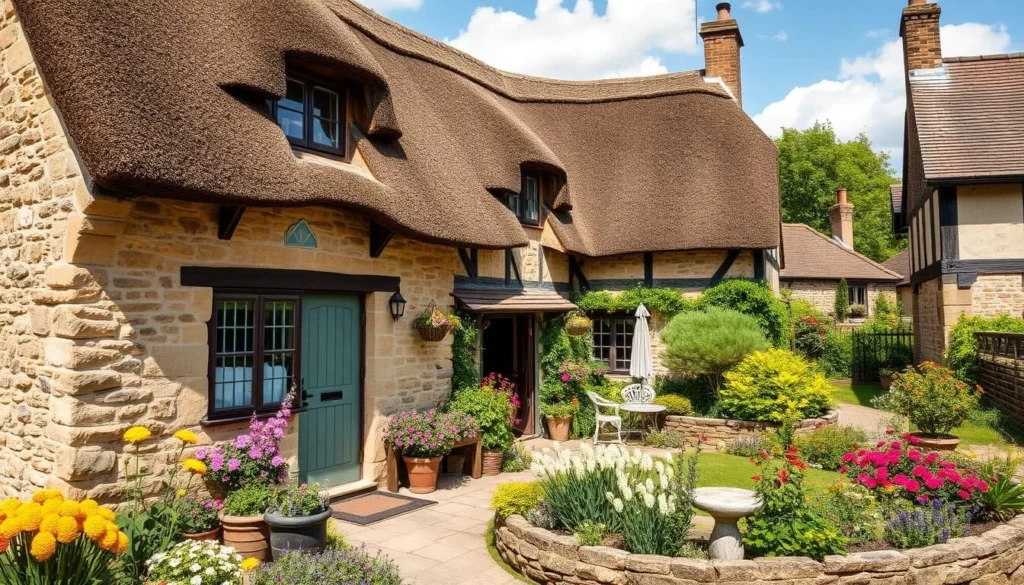
England offers accommodation options to suit every budget and preference, from luxury hotels to homey bed and breakfasts.
City Accommodations
Major cities like London, Manchester, and Liverpool offer the full spectrum of lodging choices. International hotel chains cluster in city centers, while boutique hotels provide more character, often in historic buildings. Budget travelers can choose from hostels, university accommodations (available during summer breaks), and increasingly popular pod hotels that offer compact but comfortable rooms.
Countryside Retreats
The English countryside is famous for its charming bed and breakfasts (B&Bs), where you’ll typically enjoy a comfortable room in a family home and wake up to a hearty full English breakfast. For a truly memorable experience, consider staying in a historic property – organizations like the National Trust and the Landmark Trust preserve and rent out everything from lighthouses to medieval towers.
Unique Stays
For something different, try glamping in shepherd’s huts in Sussex, converted railway carriages in Northumberland, or treehouses in the New Forest. In the Lake District and Yorkshire, you can even stay in castle hotels for a taste of aristocratic living.
Find Your Perfect England Accommodation
From historic city hotels to countryside cottages, book your ideal stay.
Accommodation prices vary dramatically by location and season. London is consistently expensive, while provincial cities offer better value. In all popular tourist areas, prices spike during summer and school holidays, so book well in advance if traveling during these periods.
Dining & Local Cuisine
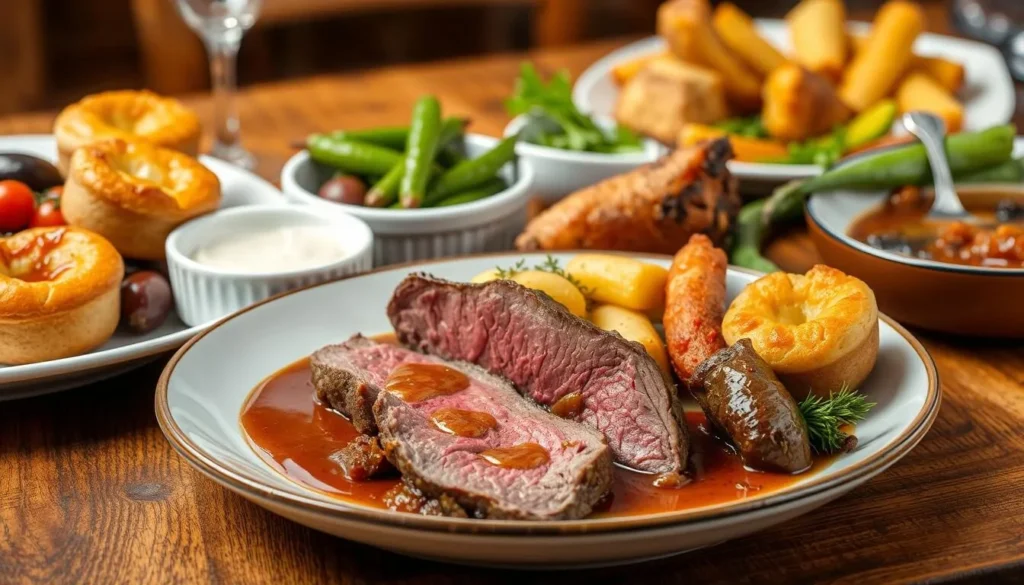
English cuisine has undergone a remarkable renaissance in recent decades, shedding its formerly poor reputation. Today, the food scene blends traditional comfort foods with innovative modern cooking and diverse international influences.
Must-Try English Classics
- Sunday Roast: The cornerstone of English dining – roasted meat (typically beef, chicken, or lamb) served with Yorkshire pudding, roast potatoes, vegetables, and rich gravy. Best enjoyed in a traditional pub on Sunday afternoon.
- Fish and Chips: Crispy battered fish with thick-cut fries, traditionally served with mushy peas and doused in salt and vinegar. Seek out dedicated “chippies” rather than tourist traps for the authentic experience.
- Full English Breakfast: A hearty morning meal featuring eggs, bacon, sausage, baked beans, grilled tomato, mushrooms, and toast. Regional variations include black pudding in the north and bubble and squeak in London.
- Afternoon Tea: An elegant tradition of tea served with finger sandwiches, scones with clotted cream and jam, and pastries. For a special experience, book at historic hotels like The Ritz or Claridge’s in London.
- Regional Specialties: Try Cornish pasties in Cornwall, Lancashire hotpot in northern England, and Bakewell tart in the Peak District.
Drinking Culture
The pub (public house) remains central to English social life. These establishments serve not just drinks but often excellent “pub grub” in a convivial atmosphere. Real ale, a traditional British beer served from casks, is experiencing a revival alongside the craft beer movement. For non-alcoholic options, try a cream tea in Devon or Cornwall – a pot of tea with scones, clotted cream, and jam.
In cities, you’ll find every international cuisine imaginable, from high-end restaurants to street food markets. London’s Borough Market, Manchester’s Altrincham Market, and Oxford’s Covered Market are excellent places to sample local and international flavors.
Attractions, Sightseeing & Activities

England offers an extraordinary range of attractions that reflect its rich history, diverse landscapes, and vibrant culture. Here are some of the best things to do across the country:
Historic Landmarks
- Stonehenge: This mysterious prehistoric stone circle in Wiltshire dates back over 5,000 years and continues to captivate visitors with its enigmatic presence and astronomical alignment.
- Tower of London: A historic castle on the Thames that has served as a royal palace, prison, treasury, and now houses the Crown Jewels.
- Roman Baths: Remarkably preserved ancient thermal spa in the city of Bath, where you can explore the temple, sacred spring, and Roman bathing complex.
- Hadrian’s Wall: Built by the Romans to mark the northern boundary of their empire, this 73-mile stone wall stretches across northern England.
- Canterbury Cathedral: The magnificent seat of the Anglican Church, with stunning architecture and the site of Thomas Becket’s infamous murder.
Experience the Best of English History
Skip the lines and make the most of your visit with guided tours to England’s most iconic attractions.
Royal Experiences
- Buckingham Palace: The Queen’s official London residence opens its State Rooms to visitors during summer months. Don’t miss the Changing of the Guard ceremony.
- Windsor Castle: The oldest and largest occupied castle in the world, serving as both a royal home and a working palace.
- Hampton Court Palace: Henry VIII’s magnificent Tudor palace with beautiful gardens, a famous maze, and reportedly several royal ghosts.
Urban Explorations
- London Eye: This giant observation wheel offers panoramic views over London and the Thames.
- Albert Dock: Liverpool’s revitalized waterfront district, home to The Beatles Story museum and the Tate Liverpool.
- The Lanes: Brighton’s quirky shopping district filled with independent boutiques, antique shops, and cafes in a maze of narrow alleyways.
- Birmingham’s Jewellery Quarter: Historic district producing 40% of the UK’s jewelry, with museums, galleries, and craft workshops.
Museums, Cultural Spots & Festivals
England boasts some of the world’s finest museums and a year-round calendar of vibrant cultural events that showcase its rich heritage and contemporary creativity.
World-Class Museums
- British Museum (London): Home to one of the world’s most comprehensive collections of human history, culture, and art, spanning two million years. The Rosetta Stone and the Elgin Marbles are among its treasures.
- National Gallery (London): Houses masterpieces from the 13th to the 19th centuries, including works by Van Gogh, Monet, da Vinci, and Turner.
- Tate Modern (London): Britain’s national museum of modern and contemporary art, housed in a converted power station on the banks of the Thames.
- Victoria and Albert Museum (London): The world’s largest museum of applied arts, decorative arts, and design, housing a permanent collection of over 2.27 million objects.
- Museum of Science and Industry (Manchester): Explores the development of science, technology, and industry with emphasis on Manchester’s achievements in these fields.
Cultural Experiences
- Shakespeare’s Globe (London): A reconstruction of the original Globe Theatre, offering authentic performances of Shakespeare’s plays.
- Stratford-upon-Avon: Shakespeare’s birthplace, where you can visit his childhood home and see Royal Shakespeare Company productions.
- Hay-on-Wye: The “town of books” in the border region hosts the renowned Hay Festival of Literature & Arts each spring.
- The Royal Albert Hall (London): This iconic venue hosts everything from classical concerts to rock shows in its magnificent circular auditorium.
Must-Experience Festivals
- Glastonbury Festival (June): The legendary music festival that combines world-class performances with a unique atmosphere of creativity and counterculture.
- Notting Hill Carnival (August Bank Holiday): Europe’s biggest street festival celebrates Caribbean culture with vibrant parades, music, and food in west London.
- Chelsea Flower Show (May): The world’s most prestigious flower show showcases innovative garden designs and horticultural exhibits.
- Bonfire Night (November 5): Commemorates the failed Gunpowder Plot with fireworks displays and bonfires across the country, with Lewes in Sussex hosting particularly spectacular celebrations.
- York Christmas Festival (November-December): Transforms this historic city into a winter wonderland with markets, lights, and medieval charm.
Experience Cultural England
Book guided tours to museums, theaters, and festival experiences across England.
Sports, Nature & Outdoor Experiences
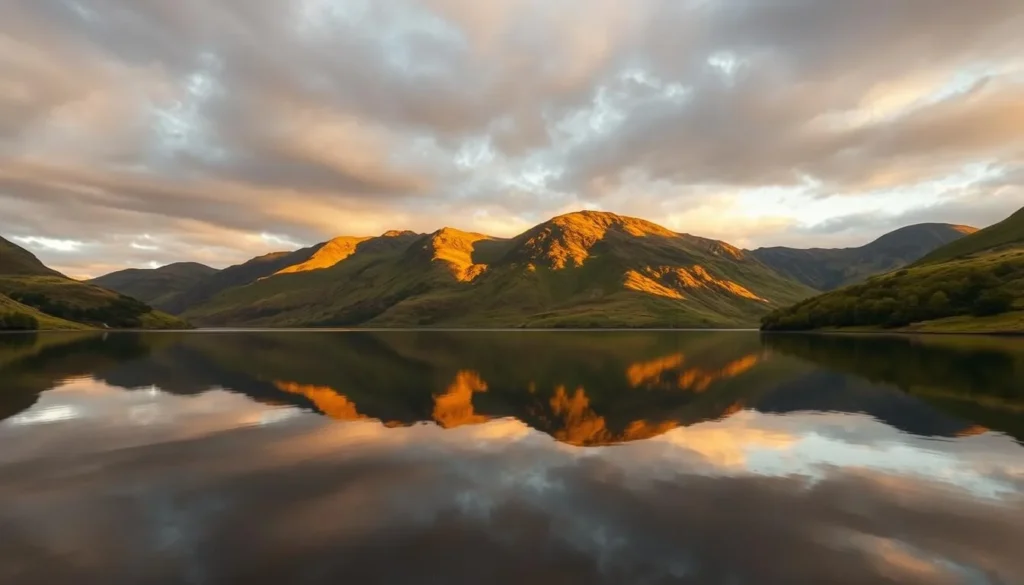
England’s varied landscapes offer countless opportunities for outdoor adventures, from gentle countryside rambles to challenging mountain climbs.
National Parks and Natural Wonders
- Lake District: England’s largest national park features 16 major lakes and England’s highest peak, Scafell Pike (978 m/3,209 ft). The area inspired poets like Wordsworth and remains one of the best places to visit in England for hiking, boating, and simply soaking in spectacular scenery.
- Peak District: England’s first national park offers dramatic limestone valleys, moorland plateaus, and charming villages. Popular for hiking, rock climbing, and cave exploring.
- White Cliffs of Dover: These iconic chalk cliffs rising 110 m (350 ft) from the English Channel offer spectacular coastal walks and views to France on clear days.
- Jurassic Coast: This 95-mile stretch of southern English coastline spans 185 million years of geological history, with dramatic cliffs and formations like Durdle Door.
- New Forest: Ancient woodland and heathland where wild ponies roam freely, offering excellent hiking, cycling, and wildlife watching opportunities.
Sporting Traditions
- Football: Experience the passion of the world’s most popular sport by attending a Premier League match or taking a stadium tour at iconic venues like Manchester United’s Old Trafford or Liverpool’s Anfield.
- Tennis at Wimbledon: The world’s oldest and most prestigious tennis tournament takes place for two weeks in late June and early July. Even if you can’t secure tickets to the main courts, you can join the famous queue for grounds passes.
- Cricket: This quintessentially English game is best experienced at Lord’s in London or during a county match at a smaller ground, where you can enjoy a leisurely day in the sunshine (weather permitting!).
- Horse Racing: Attend prestigious events like Royal Ascot, the Epsom Derby, or the Grand National for a glimpse into English sporting tradition and fashion.
Coastal Adventures
- Surfing in Cornwall: The southwest peninsula offers England’s best surfing, with Fistral Beach in Newquay being the epicenter of British surf culture.
- Sailing in the Solent: The waters between mainland England and the Isle of Wight are perfect for sailing, with Cowes Week being the highlight of the regatta calendar.
- Wild Swimming: Join the growing movement of outdoor swimmers at locations like the Lake District’s Wastwater or Hampstead Heath’s swimming ponds in London.
Adventure Awaits in the English Countryside
Book guided outdoor activities and adventures across England.
Safety, Etiquette & Local Customs
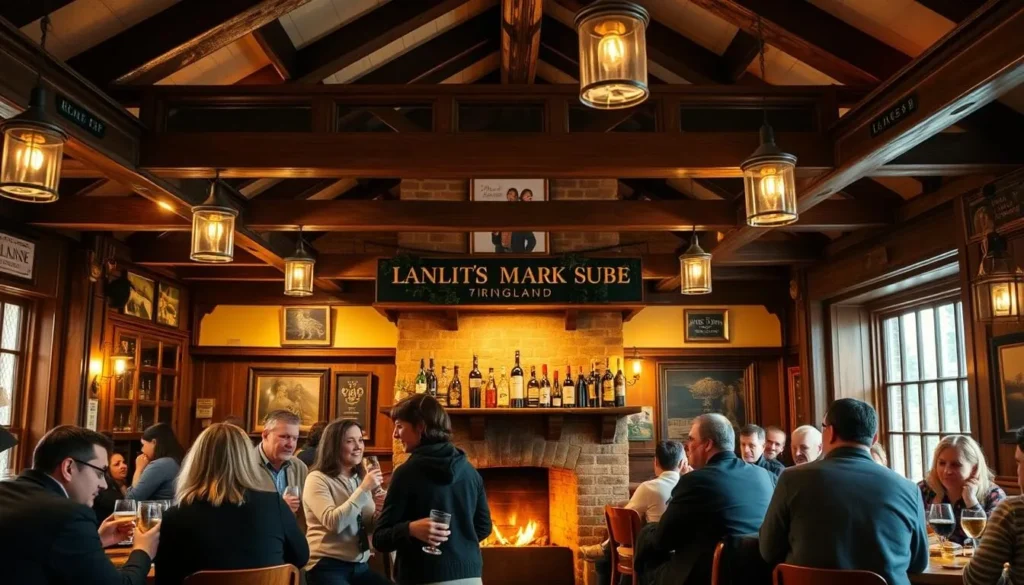
England is generally a safe and welcoming destination for travelers, with low crime rates and friendly locals. However, understanding a few cultural norms will help you navigate English society smoothly.
Safety Tips
- Emergency Services: Dial 999 for police, fire, or ambulance in emergencies. For non-emergency police matters, dial 101.
- Healthcare: The National Health Service (NHS) provides emergency care to visitors, but comprehensive travel insurance is strongly recommended to cover any medical needs.
- Urban Safety: Major cities are generally safe, but take normal precautions against pickpocketing in crowded tourist areas, especially in London.
- Road Safety: Remember that England drives on the left. Take extra care when crossing roads if you’re from a right-side driving country.
- Weather Preparedness: If hiking in mountainous areas like the Lake District or Peak District, be prepared for rapidly changing weather conditions, even in summer.
English Etiquette
- Queuing: The English take standing in line very seriously. Always join the end of any queue and wait your turn.
- Personal Space: English people generally prefer a bit more personal space than in some other cultures. Avoid standing too close in conversation.
- Politeness: “Please,” “thank you,” and “sorry” are used frequently. Saying “sorry” often functions as an all-purpose expression that can mean “excuse me” or acknowledge a minor inconvenience.
- Tipping: In restaurants, a 10-15% tip is customary for good service, though many establishments add a service charge automatically. Tipping is not expected in pubs when ordering at the bar, but is appreciated for table service.
- Pub Etiquette: In pubs, you typically order and pay at the bar rather than waiting for table service. When in a group, buying a “round” (drinks for everyone) is common practice.
Cultural Awareness
The United Kingdom comprises four distinct nations – England, Scotland, Wales, and Northern Ireland – each with its own identity. Avoid referring to the entire UK as “England,” which can offend Scots, Welsh, and Northern Irish people.
The English are known for their reserve and understatement. They often use irony and self-deprecating humor, which can sometimes be misinterpreted by visitors. They generally avoid discussing money, and asking someone what they earn would be considered rude.
Visitor Comments About England
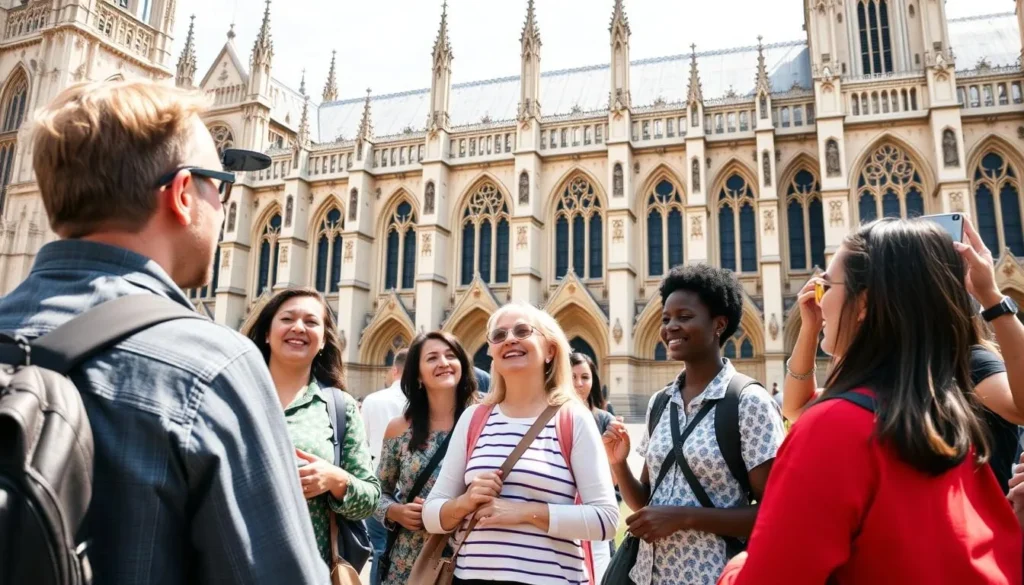
“I was worried about the famous English weather, but we visited in May and had gorgeous sunshine almost every day. The Lake District was one of the most beautiful places I’ve ever hiked – those views across Windermere were worth every step!”
“Don’t make the mistake we did trying to cram too much into one trip. We spent 10 days racing between London, York, the Cotswolds, and Bath, and felt like we were always on a train. Next time, we’ll pick one region and explore it properly.”
“The locals were so much friendlier than the stereotype suggests! We got lost in a small village in Yorkshire, and a couple not only gave us directions but walked us halfway to our destination while sharing stories about the area’s history.”
“Bath during the Christmas Market was absolute magic. Yes, it was crowded and accommodations were expensive, but the atmosphere with the lights reflecting off the honey-colored stone buildings made it all worthwhile. Book well in advance if you’re planning to visit in December!”
Practical Travel Tips
Money Matters
- Currency: The British pound (£) is the official currency. While Scotland and Northern Ireland issue their own banknotes, these are the same currency and legal tender throughout the UK.
- Payment Methods: Credit and debit cards are widely accepted, with contactless payment common for small purchases. Keep some cash for small businesses in rural areas.
- ATMs: Widely available in cities and towns, most do not charge for withdrawals, though your home bank might.
- VAT Refunds: Non-UK visitors can claim back the 20% Value Added Tax on certain purchases. Ask for a VAT refund form when shopping.
Connectivity
- Electricity: England uses 230V power with three-pin plugs (Type G). Bring an adapter if your devices use different plugs.
- Wi-Fi: Widely available in accommodations, cafes, and many public spaces. Most pubs and restaurants offer free Wi-Fi.
- Mobile Service: Consider purchasing a local SIM card for data if staying more than a few days. Major providers include EE, Vodafone, and Three.
Travel Hacks
- London Transport: Get an Oyster card or use a contactless payment card for the best fares on London public transport. Avoid traveling during rush hours (7:30-9:30 AM and 5-7 PM).
- Museum Passes: Many national museums in England are free, including the British Museum, National Gallery, and Tate Modern.
- Rail Savings: If planning multiple train journeys, consider a BritRail pass. For specific routes, booking 12+ weeks in advance can save significantly.
- Accommodation Alternatives: Beyond hotels, consider university accommodations during summer, holiday cottages for longer stays, or home exchanges.
Ready for a British Adventure?
Explore cruise options departing from Southampton, Liverpool, or other UK ports.
Conclusion
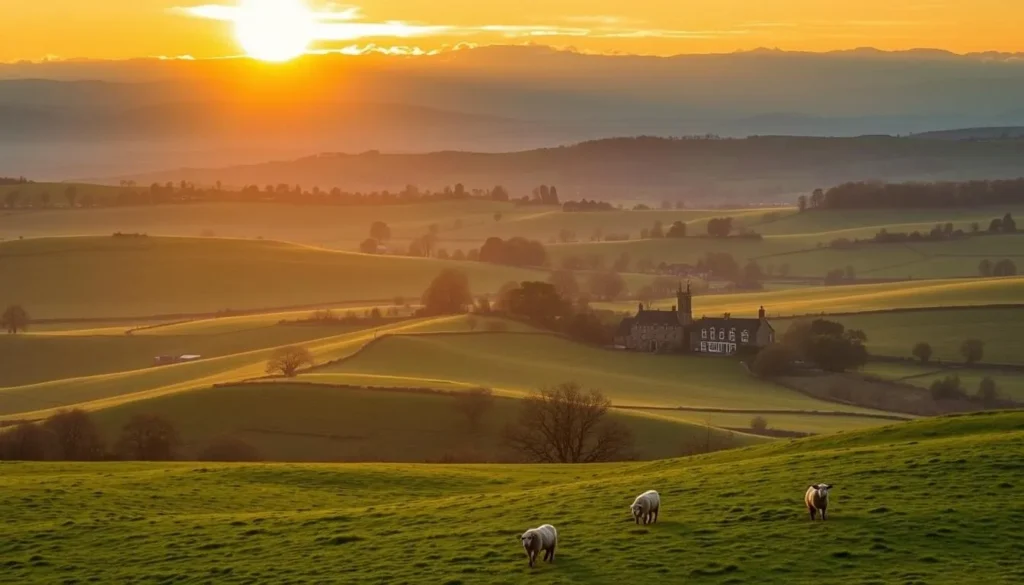
England packs an extraordinary wealth of experiences into its compact borders. From the bustling streets of London to the misty peaks of the Lake District, from world-class museums to cozy village pubs, this nation rewards visitors with unforgettable memories and unexpected discoveries.
Whether you’re tracing the footsteps of literary giants, exploring ancient castles, hiking dramatic coastlines, or simply savoring a perfect cup of tea, England offers something for every traveler. Its blend of tradition and innovation, history and contemporary culture creates a destination that reveals new layers with each visit.
Pack your umbrella, bring your curiosity, and prepare to be charmed by England’s timeless appeal and surprising diversity. As the English themselves might say – it’s absolutely brilliant!
The above is subject to change.
Check back often to TRAVEL.COM for the latest travel tips and deals.
